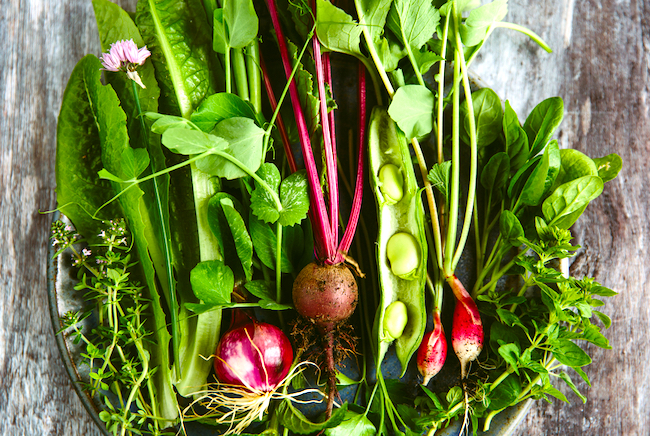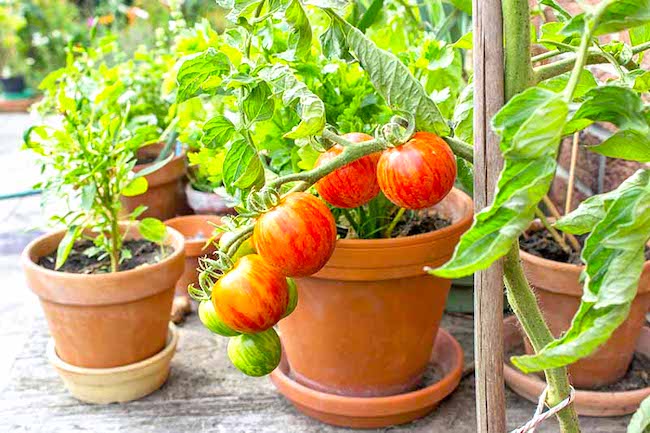Growing your garden produce can be a challenge for those who have no gardening experience. Today, I will provide you with some tips and guidelines to help get you started in gardening so that you can grow your own healthy produce.
To start gardening, all you need is a small area of land or even pots on the property to begin. If you are starting a small farm, space will not be an issue; however, you will need pots and planting tiers if you are starting your garden in an apartment.
Gardening Tools You Will Need
You will need gardening tools to get started. Here are some things that you will need:
1. Shovel- for taking care of and planting your produce.
2. Watering can or pump – for providing water to the plants in your garden.
3. Pruners/ Shears – for trimming your plants.
Feeding Your Plants
Just like a healthy lawn needs regular attention, plants require plant food to grow and stay healthy. To keep your plants healthy throughout the gardening season, you will want to provide a little fertilizer every now and then. Fertilizers are usually composed of N-P-K, which stands for nitrogen, phosphorus, and potassium. The ratio of these nutrients will determine whether or not your plants are fertilized enough.
Varieties Of Fresh Produce
If you don’t know what to plant, you can visit a local gardening supply store. They should know which plants grow best during the season. However, if you live in an area where gardening is possible year-round, then try looking up gardening charts online.
What To Plant First?
First off, decide what time of the year it is. If fall has just begun, plant your warm-season crops like tomatoes and peppers. Then, in mid-summer, you can grow corn and cucumbers.
How To Keep Pests Off Of Your Plants
Pest management is a crucial element of gardening. Fungi can spread through your crops if you do not take preventative action. For example, if you have more than one row of plants, keep them at least two feet apart from each other so that the pests don’t spread and infest every plant in that row.
There are natural and chemical-based pesticides that you can use. Select what works best for your garden but try to use the least amount of chemicals as possible. Pay close attention to your plants, and do your best to identify dangerous insects on your plants. Finding mites and destructive plant eaters early on will save you time and money. If you don’t see any pests, just water your plants regularly and make sure they are planted in well-drained soil. Drip irrigation is recommended over overhead sprinklers since it uses less water and keeps the leaves dry so that they don’t become saturated with water.

Harvesting Your Fresh Produce
With a small gardening space, it will be essential to check on the plants every day. You can pick produce when it is ready to harvest or when you think that the fruits of vegetables and herbs have matured enough for harvesting. Harvesting at just the right time maximizes freshness and flavor but also minimizes waste. Depending on when you plan on eating your crops, you may choose to pick them early or at precisely the perfect time. Pulling produce off of the vine when they are perfectly ripe is the ideal scenario. However, some vegetables, like tomatoes, will ripen and produce more if they are left on the vine longer. Peppers should be picked when coloring is well along, and fruits have a glossy appearance. Vegetables that are harvested too early still have their gardening space. Wait until beans begin to turn yellow before picking them for the best flavor.
Check With The Locals
If you are new to gardening or just bought some land that you intend to farm on, talk with the locals about the soil, and weather conditions to determine which are the best crops for you to plant. Are you having trouble making up your mind about what produce to grow? Ask the community gardening experts around you for their suggestions.
Get Educated And Start Planting
Get yourself a gardening book and check out gardening blogs online to learn more about your new craft. Then, find the local nursery; it’s going to have everything you need for planting, fertilizing, pest control, and growing your unique garden!
